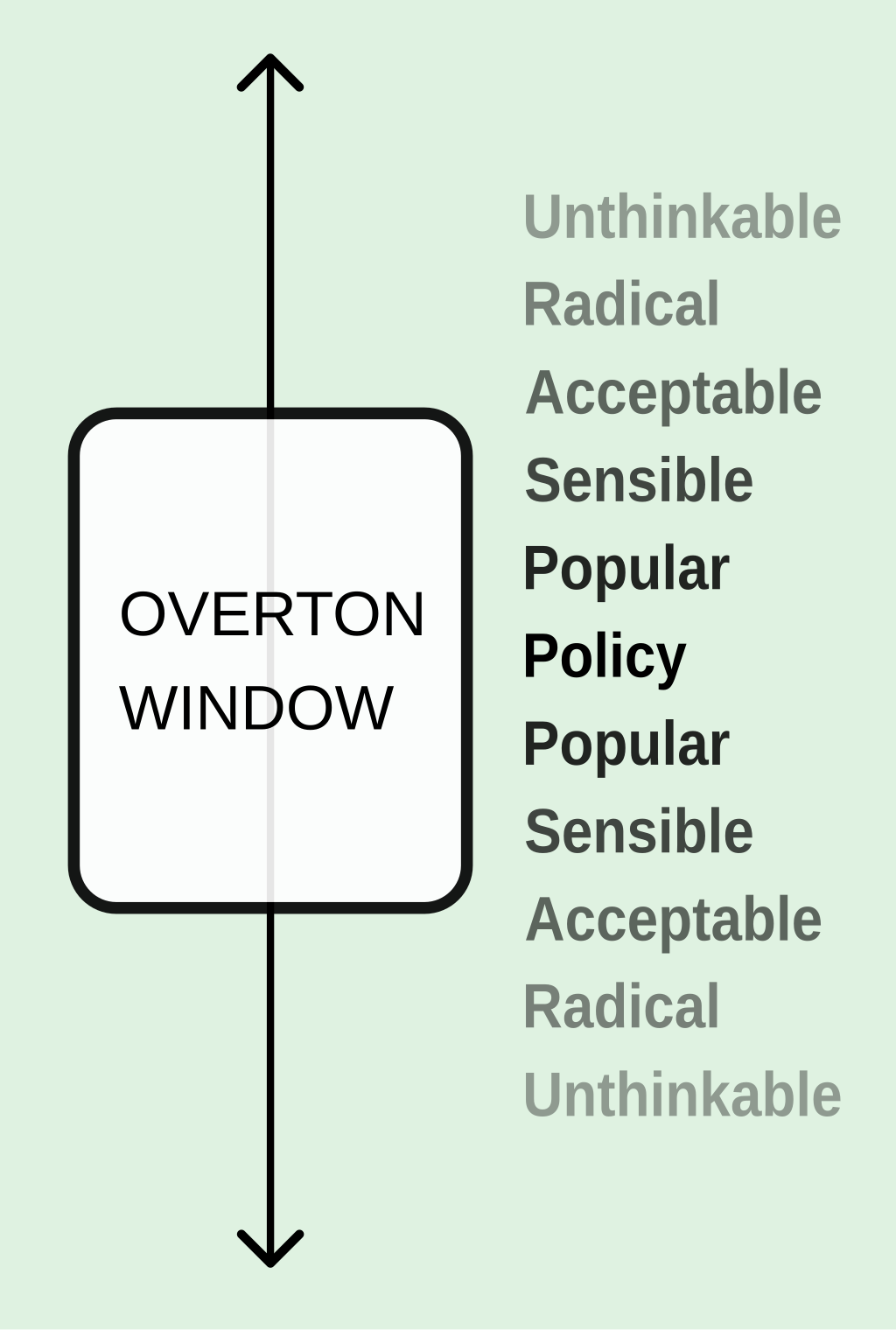The Overton window is the range of subjects and arguments politically acceptable to the mainstream population at a given time. It is also known as the window of discourse. The key to the concept is that the window changes over time; it can shift, or shrink or expand. It exemplifies “the slow evolution of societal values and norms”.

Claims:
The Burden of Respectability
Pressure on public figures and ordinary people alike to avoid expressing ideas that fall outside what’s currently deemed acceptable or respectable. This can limit the range of views that are publicly voiced and contribute to a narrowing of discourse
Converging Monoculture
The merging of global tastes and the rise of monoculture have fundamentally reduced the perceived value of rare and innovative ideas. As mass culture becomes the center of conversation, the appetite—and perceived safety—of expressing divergent views diminishes, reinforcing consensus at the expense of experimentation and dissent. This is illustrated by commentary on how the status value of culture has changed due to the internet and globalization
Structural and Social Stratification
Increasing specialization and the segregation of different segments of society makes it harder for diverse perspectives and knowledge to transfer across social boundaries.
Optimization and Narrowing of Purpose
When systems, whether cultural or organizational, undergo “structure or optimization,” this can mark the beginning of stagnation. The push for efficiency and measurable progress often sidelines experimentation and outlier perspectives, similarly to social stratification.